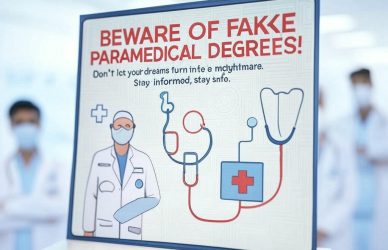In today’s rapidly changing world, degrees without practical experience are like cars without engines — they may look good on paper, but they don’t take you far. As we step further into 2025, students face a competitive, tech-driven, and outcome-focused job market. The traditional approach to education is no longer enough. This is why choosing a degree that is skill-linked, offers internships, and provides on-the-job training (OJT) is not just smart — it’s essential.
Here’s why:
🔧 1. Skills are the New Currency
Employers today don’t just want degrees — they want skills. Whether it’s coding, data analysis, digital marketing, or customer service — what matters is what you can do, not just what you know.
A skill-integrated degree ensures you learn industry-relevant tools and techniques alongside theory.
🧠 Example: A B.Tech student who codes real-life projects during internships is more employable than one who’s only written exams.
🧳 2. Internships Provide Real-World Exposure
Classrooms teach concepts. Internships teach context.
Through internships, students get:
- A taste of corporate culture
- An understanding of real challenges
- An opportunity to build networks
- A chance to explore what job roles suit them best
In 2025, employers expect “job-ready” candidates from day one — internships prepare you exactly for that.
🏢 3. On-the-Job Training Builds Confidence
There’s a world of difference between learning in theory and doing things in reality. OJT programs bridge this gap by allowing students to:
- Work part-time during their degree
- Earn while they learn
- Apply their skills daily
- Graduate with real experience on their resume
This makes them more confident and future-ready.
💼 4. Better Placement Outcomes
Let’s be honest — every student ultimately asks, “Will I get a good job?”
Here’s the fact: Companies prefer candidates with experience. Degrees with built-in internships and skill components increase placement chances, offer better salaries, and open up global opportunities.
🎯 Employers hiring freshers from such programs know they won’t have to spend months training them.
🔁 5. Learning Becomes Dynamic & Industry-Driven
Skill-linked programs are co-designed with industry partners, ensuring that:
- Curriculum stays updated
- Emerging technologies like AI, Blockchain, and Cybersecurity are covered
- Faculty includes industry professionals
- Students solve real problems, not just textbook cases
In short, your classroom mirrors the workplace.
👣 6. Early Career Clarity
Many students graduate without a clue about what they want to do. But those who go through internships and OJTs get a first-hand look into multiple roles, helping them:
- Understand their strengths
- Make informed career choices
- Build a focused resume early
🌍 7. Global Relevance & Future-Proofing
In 2025 and beyond, remote work, gig economy, and global collaboration are the norm. Skill-linked degrees train students to adapt quickly, work across cultures, and stay employable in an AI-driven future.
✅ Final Thoughts
Degrees with skill integration, internships, and on-the-job training are not an add-on — they are the backbone of modern higher education. They prepare students not just for a job, but for a lifelong career.
So, if you’re a student planning your future — ask not just “Which course?”, but also “What skills and experience will I gain?”
🎓 Choose a degree that doesn’t just teach you — but transforms you.
Looking for such career-building programs?
Explore universities that offer skill-integrated education, industry partnerships, and real-world exposure — because the future belongs to the prepared.







